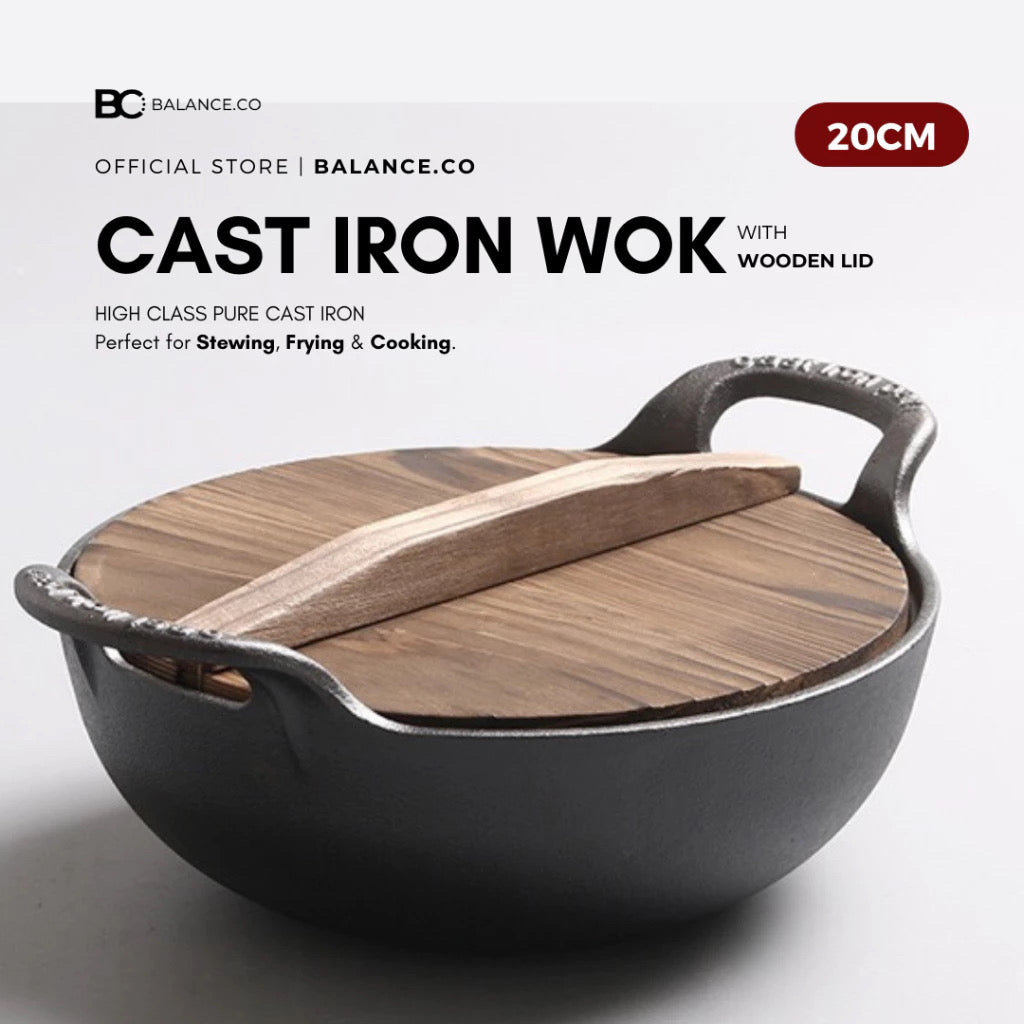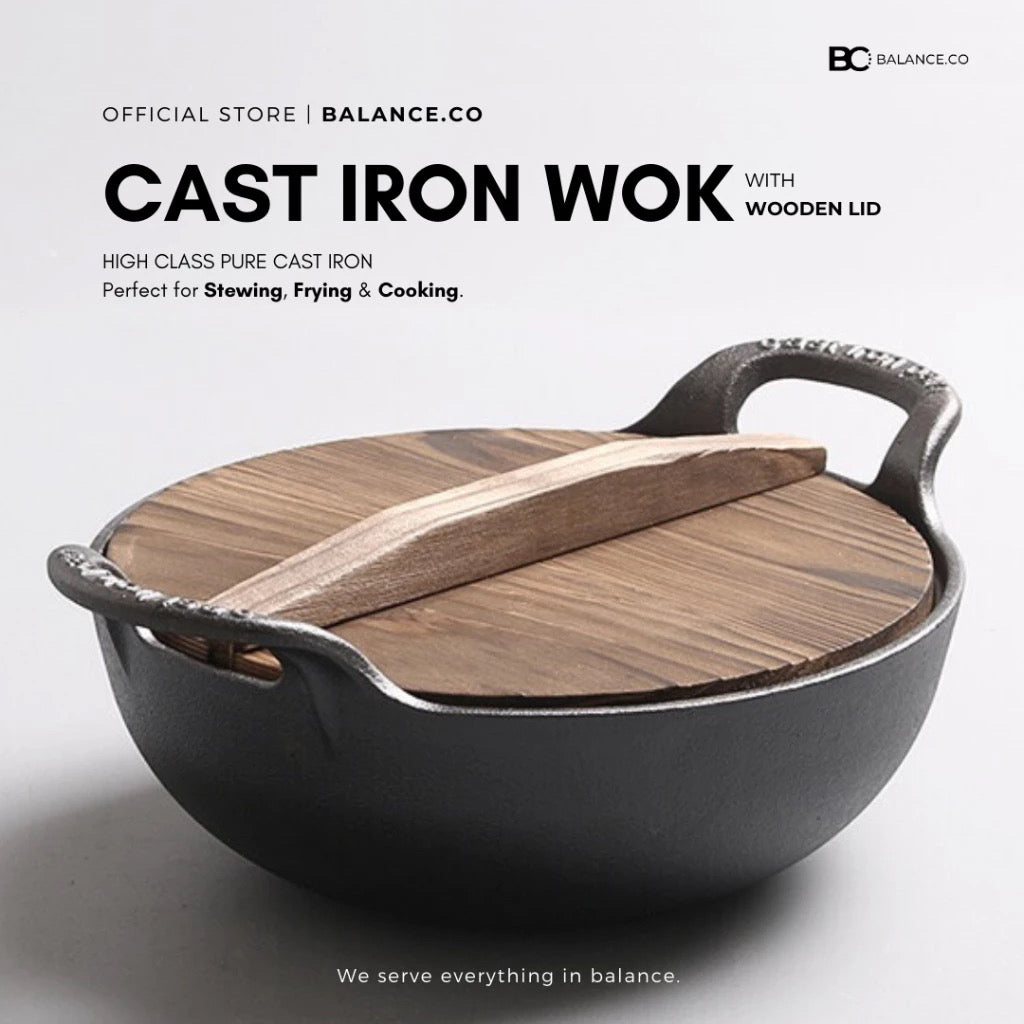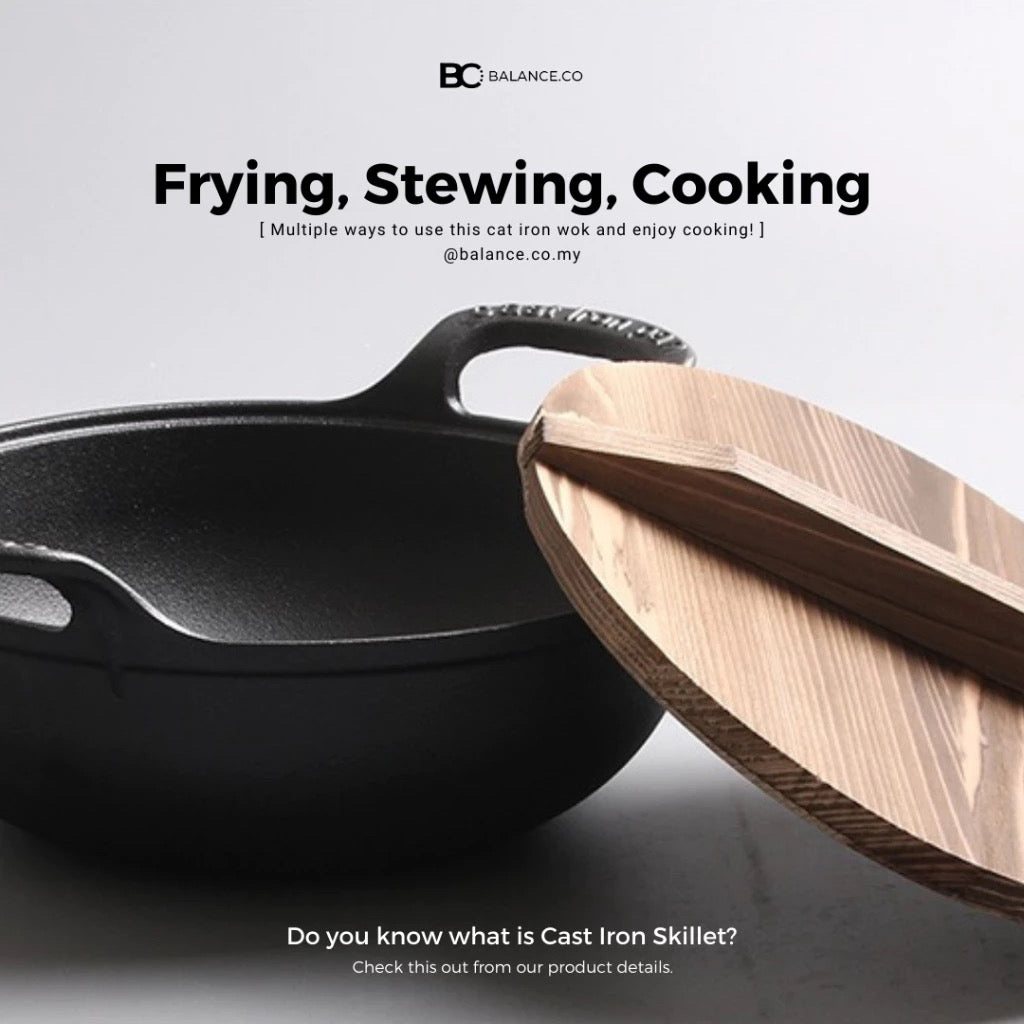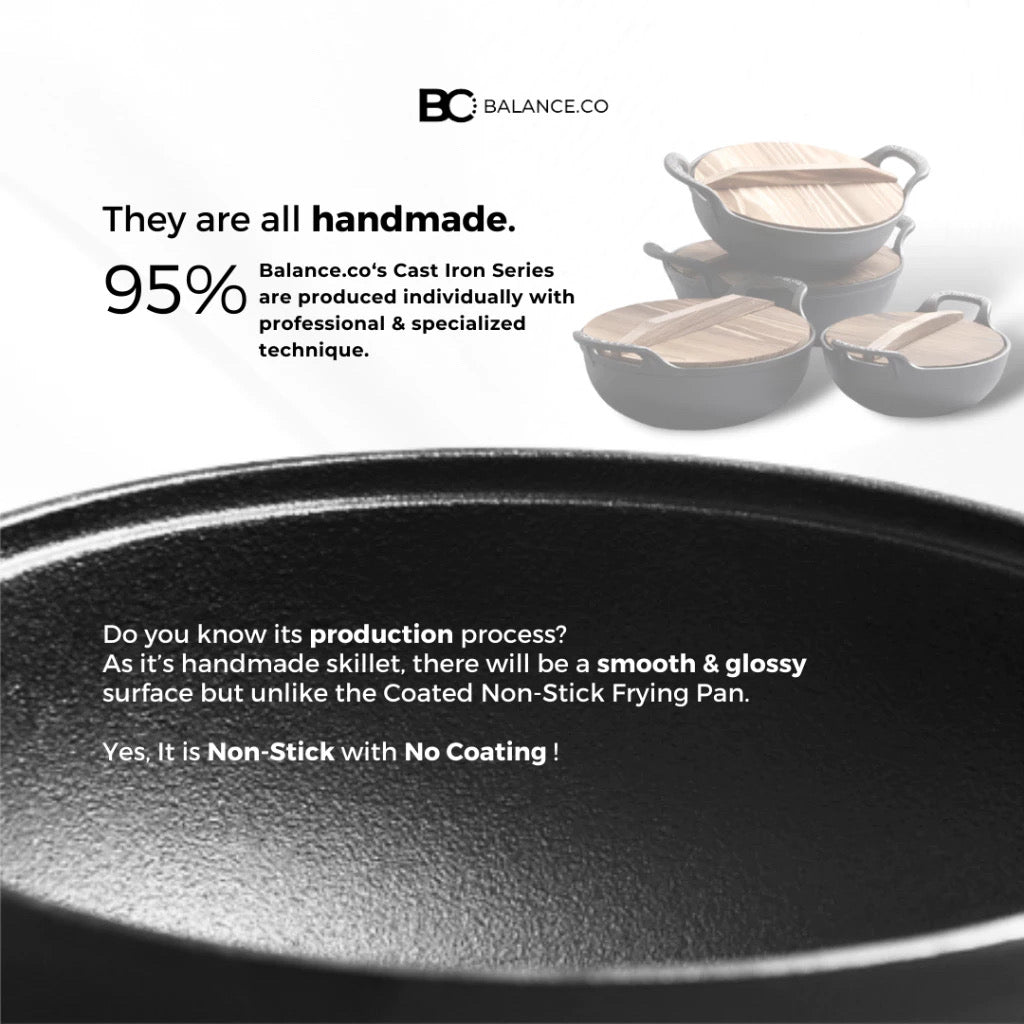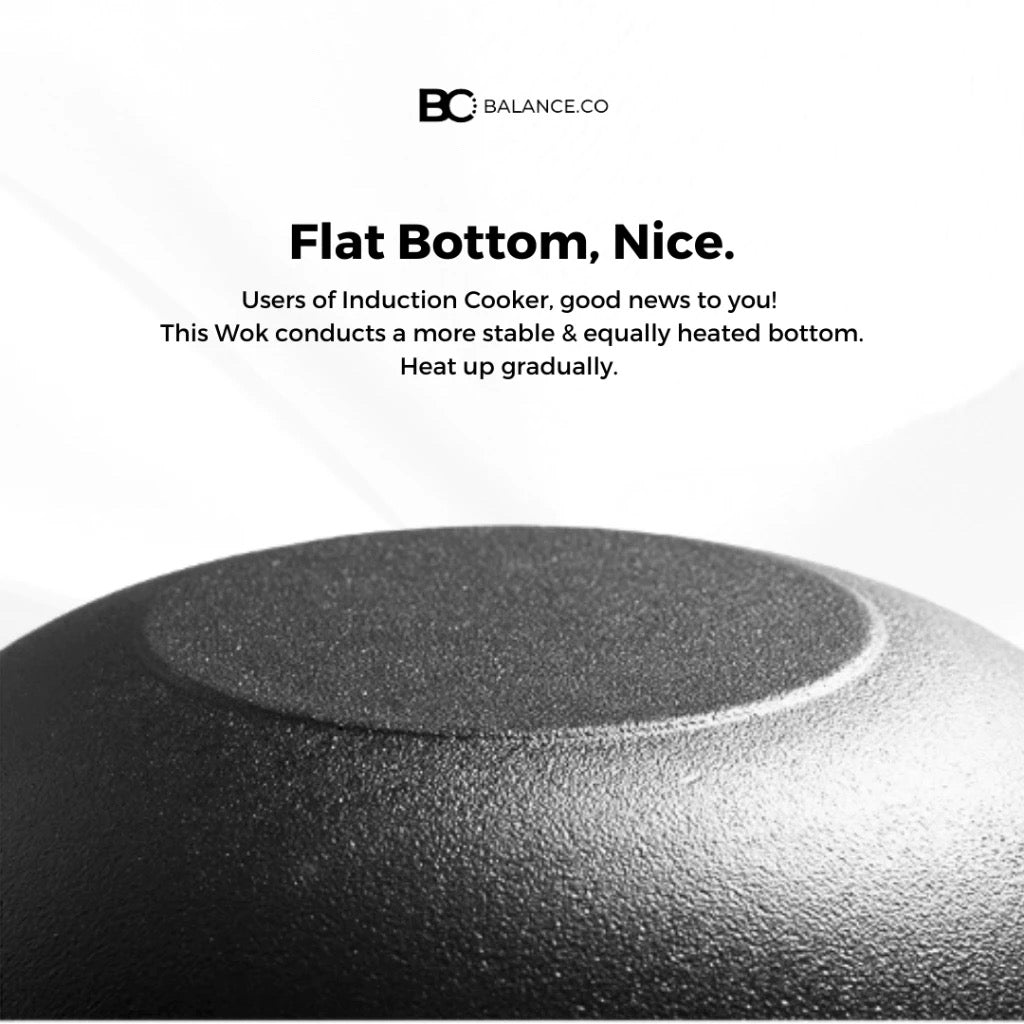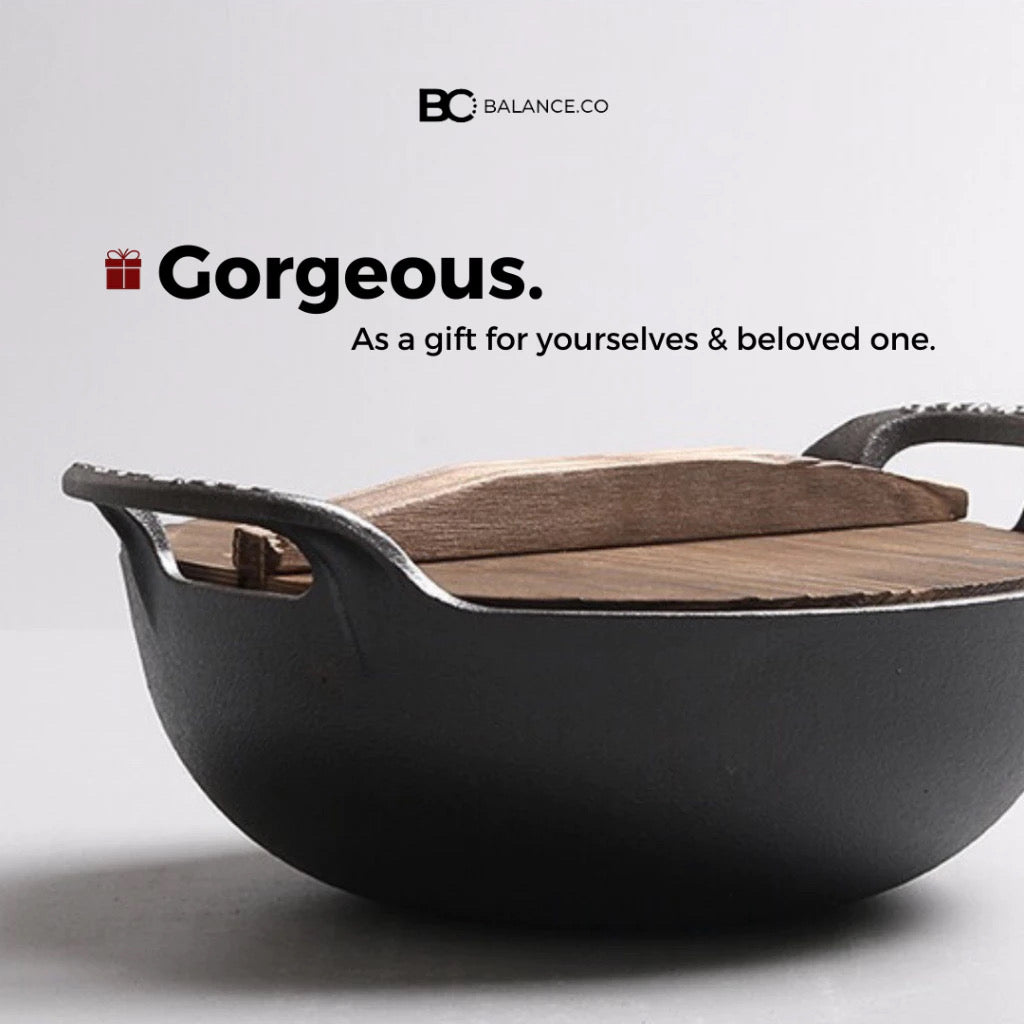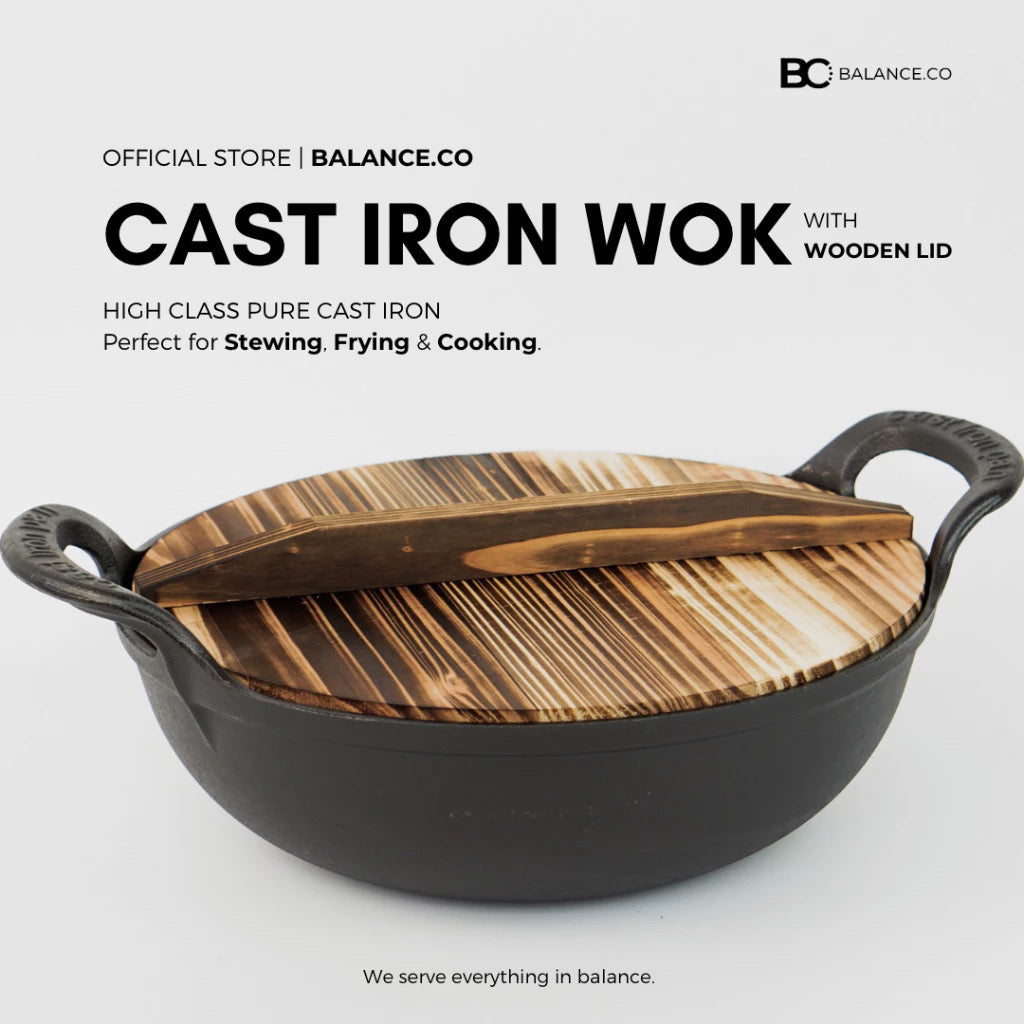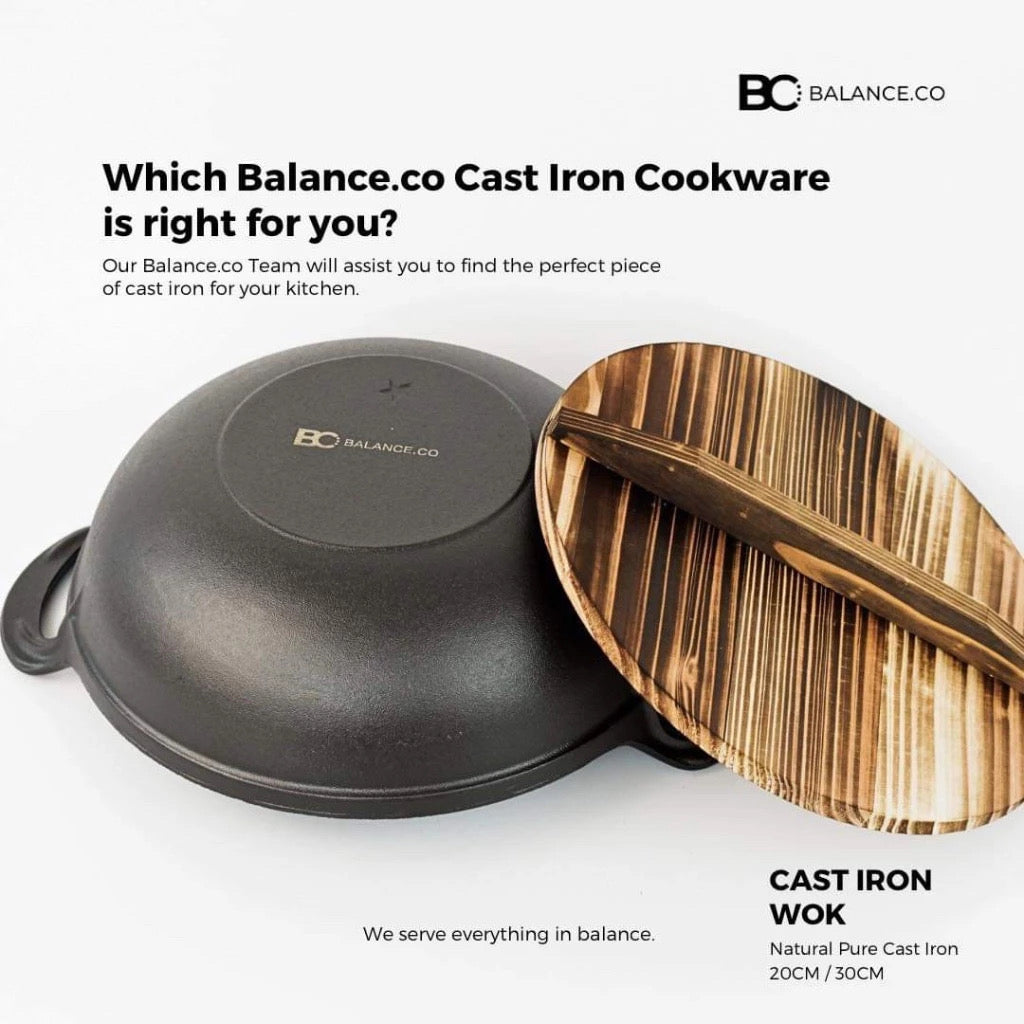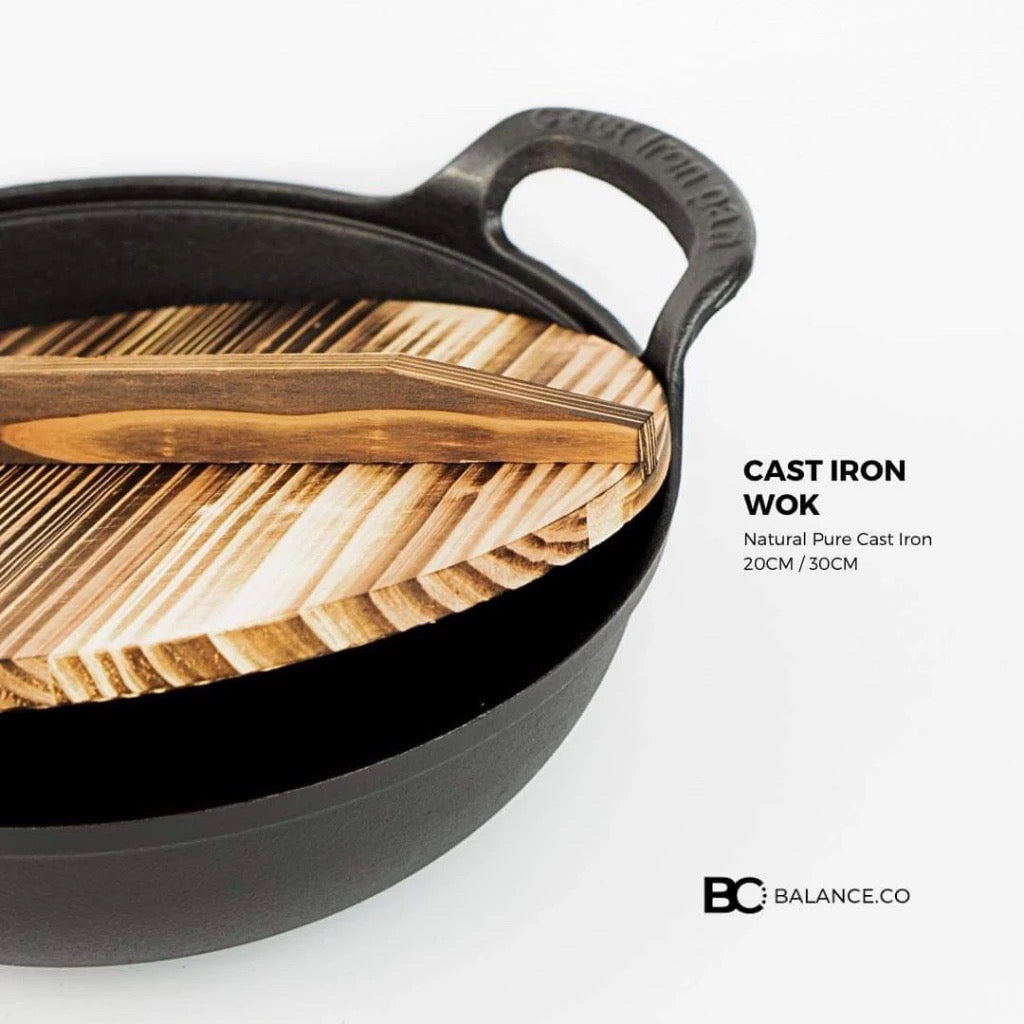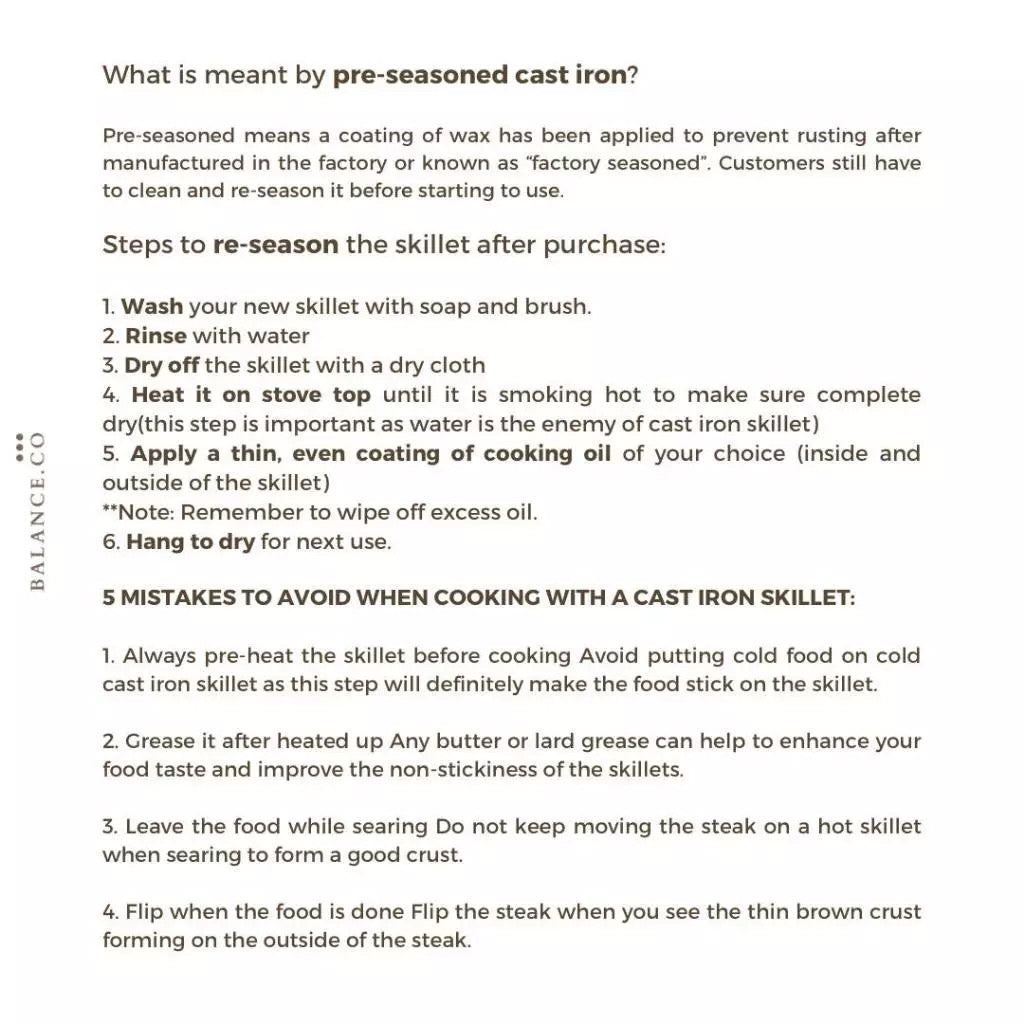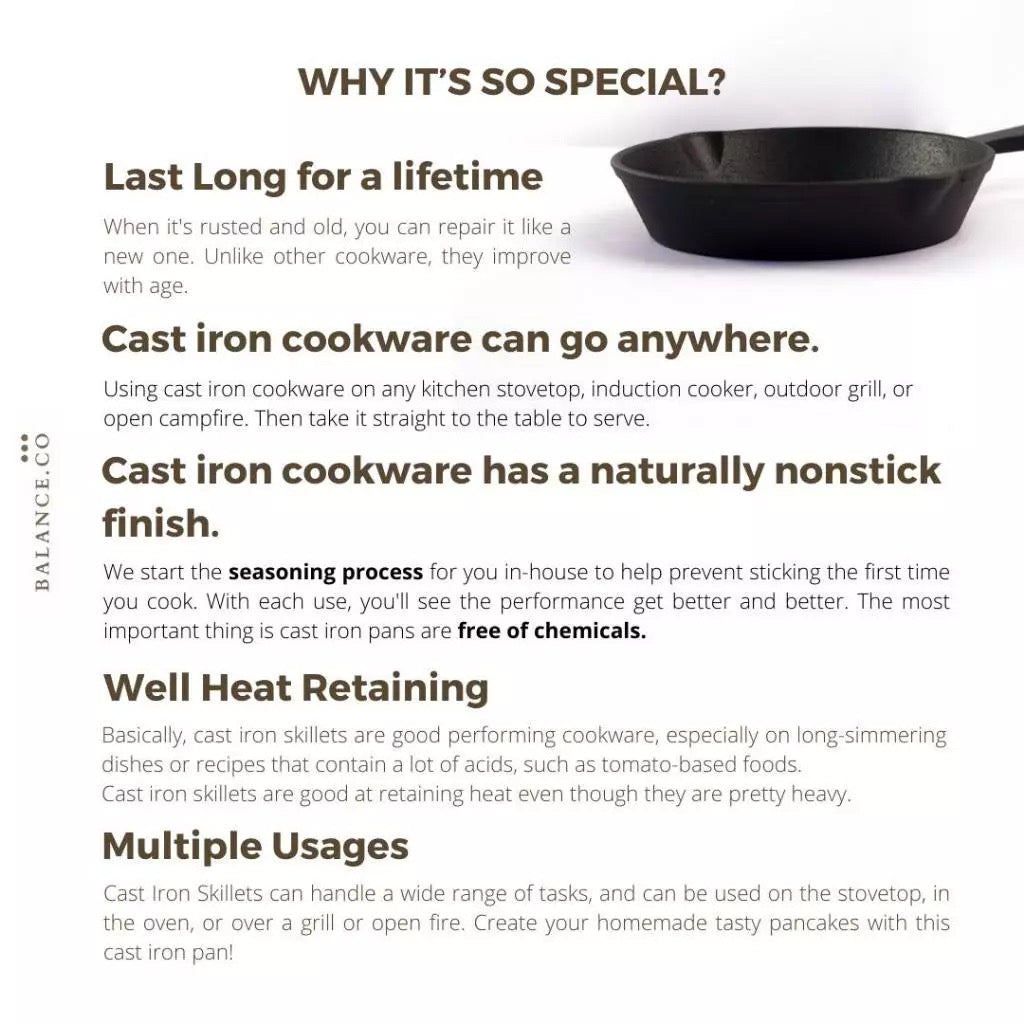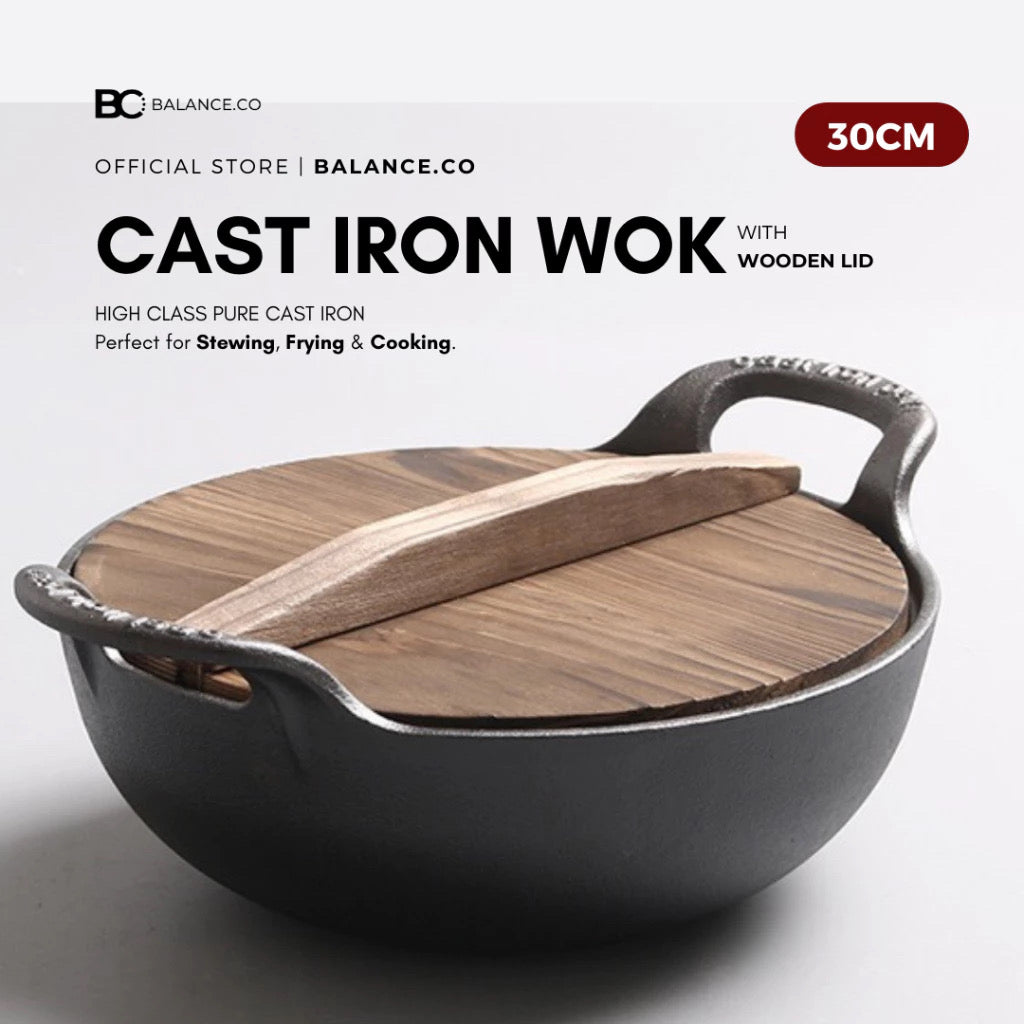Balance.co
Cast Iron Ingot Wok
Cast Iron Ingot Wok
Couldn't load pickup availability
Product Specifications:
-
Material:
Pure Cast Iron -
Size Variations:
20 cm // 30 cm -
Weight (Without Lid):
1.5 kg // 3.2 kg -
Height:
7 cm // 9.5 cm -
Diameter (Without Handles):
20 cm // 30 cm -
Compatibility:
Suitable for all stove types, including Electric Cookers, Induction Cookers, Direct Fire, Gas Stoves, and Oven.
Note: Not suitable for microwave use.
**Due to the hand-tempered nature of the cast iron, there may be a ±1 cm variance in the wok’s diameter.
Package Includes:
- Option 1: 1 x 20 cm Cast Iron Ingot Wok + Wooden Lid
-
Option 2: 1 x 30 cm Cast Iron Ingot Wok + Wooden Lid
Product Features:
-
Healthy Cookware:
Made from toxic-free, natural cast iron with no synthetic coatings or chemicals. Cooking in cast iron can help boost your iron intake, benefiting overall health. -
Pre-Seasoned:
The wok is pre-seasoned with vegetable oil to prevent rusting and ensure a naturally non-stick surface, provided it is well-maintained. -
Heat Resistant:
The heavy-gauge construction ensures quick and even heating, superior heat retention, and helps keep food warm for longer while preserving the natural taste. -
Durable & Solid Construction:
The one-piece construction eliminates the need for rivets, so there’s no worry about the handles breaking. The wok is compatible with all utensils, including metal ones, making it perfect for long-term use. -
Non-Stick Surface:
After the wok is heated in a high-temperature oven or on a stove, the grease penetrates the iron pores, forming a protective non-stick layer. Cooking on lower heat settings will help prevent food from sticking. -
Integrated Carry Handles:
The large, upward-curving handles are designed for easy lifting and moving. The seamlessly casted handles provide a comfortable grip and enhance the cooking experience. -
Sturdy Flat Base:
The wok’s flat base ensures stability on any cooking surface, reducing the risk of accidental spills while cooking. -
Large Capacity:
With its wide diameter, this wok is perfect for large meals and a variety of cooking techniques, including stir-frying, steaming, deep frying, boiling, braising, searing, and stewing. -
Compatible with All Cookers:
The wok is suitable for use on induction stoves, electric stoves, gas stoves, and glass top stoves. It can also be used in the oven (up to 500°F) or on a grill.
What is Pre-seasoned Cast Iron?
Pre-seasoned cast iron means the skillet has been coated with a protective layer, usually wax or oil, to prevent rusting after manufacturing. This is often referred to as "factory seasoning." However, customers should still clean and re-season the skillet before using it for the first time to enhance its non-stick properties.
Steps to Re-season Your Cast Iron Skillet After Purchase
- Wash your new skillet with soap and a brush to remove any factory residue.
- Rinse thoroughly with water.
- Dry the skillet with a cloth.
- Heat it on the stovetop until it's smoking hot to ensure it is completely dry. (Important: Water can cause rust, so make sure the skillet is fully dry.)
- Apply a thin, even coating of cooking oil (inside and outside).
Tip: Wipe off any excess oil to avoid a sticky finish. - Let it cool or hang to dry, and it’s ready for your next use!
Caution: 4 Mistakes to Avoid When Cooking with a Cast Iron Skillet
-
Not Preheating the Skillet:
Always preheat the skillet before cooking. Placing cold food on a cold skillet will cause the food to stick. -
Skipping the Grease:
After the skillet is heated, add some butter or lard. This not only enhances the flavour but also improves the non-stick properties. -
Constantly Moving the Food While Searing:
When searing, let the food sit undisturbed to create a good crust. Avoid the temptation to keep moving it. -
Flipping Too Soon:
Flip the steak only when a thin, brown crust has formed on the outside for the perfect sear.
How to Clean a Cast Iron Skillet After Cooking
Important: Do not use soap, steel wool, or put it in the dishwasher.
Why? Soap removes the skillet's seasoning (the non-stick layer), and steel wool can scratch the surface, making it rust.
But if you really want to use soap or steel wool:
If you decide to use soap or steel wool, you’ll need to re-season the skillet afterward. Just rub a thin layer of oil all over the skillet (inside and outside), then heat it on the stove or in the oven until the oil forms a protective layer.
- Immediately after cooking, pour hot water into the hot skillet.
- Gently scrub the skillet with a sponge or stiff nylon brush (use tongs to avoid burns).
- Rinse with hot water.
- Sprinkle some salt in the pan and add a little hot water.
- Use a wooden spatula to scrape off any tough stains.
- Rinse thoroughly with water.
- Dry the skillet completely with a towel, then heat it on low on the stovetop.
- Apply a thin layer of oil to season it (both inside and outside), and store it in a dry place.
Share
